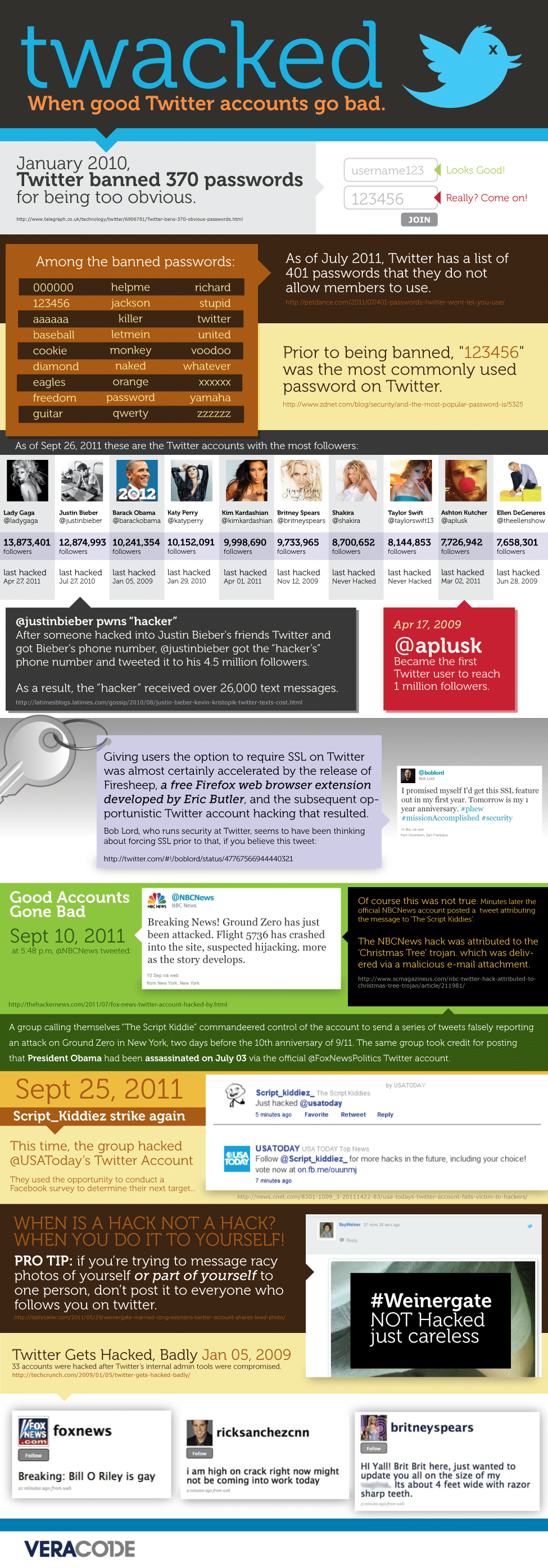It’s a common theme on Twitter to see someone’s account get hacked and suddenly start tweeting a bunch of horse manure. It’s also quite common to see tweets that warn us about things not to click on. It can be everything from DMs to tweets, but the tweets usually say the same thing, “If you get ‘this’… don’t click it!” By now, people should know not to click stuff if they don’t know what it is. For Twitter as a social networking platform, it is especially harmful since that is pretty much what the whole idea is about, to share stuff, whether it is plain text or links. However, sometimes accounts get hacked just like on any other social networking service on the web, and it’s then when really bad stuff can happen.
As a result of many accounts being hacked on Twitter due to careless password choices, the social media powerhouse decided to ban over 401 passwords (as of July, 2011) so that people would have to be a little more creative when setting up their accounts. Apparently a lot of people liked to use “richard” as their password, so that was banned as well as you can see. What is striking to me when looking at this infographic is that the most common used password, prior to the ban, was actually “123456.” It’s amazing to see what creativity people have when setting up their own accounts.
To get a better understanding about this you can have a look at this this infographic brought to our attention by VeraCode. It highlights the security measures that have been overlooked by account owners when their stream has been hijacked. It also put the spotlight on the stuff that has happened before on Twitter, whether it is accounts being hacked or what Twitter has decided to ban.
As the infographic states and what we should all remember is that there is a difference between your account getting hacked and you being careless with your account. Make sure you take the necessary precautions in order to keep your Twitter account safe, and it will be highly unlikely that your account will ever get hacked. The chance of it happening is always present, but you have at least gone to great lengths to make it is ultimately difficult to do.
Click Infographic To Enlarge

COMMENTS